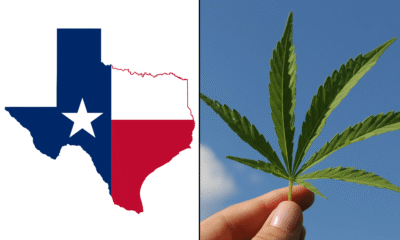A swath of cannabis financial gurus who spoke at the MJBizCon Finance Forum in Las Vegas on Tuesday morning shared a wide array of tips, thoughts and insights that essentially boiled down to one major theme: Ongoing uncertainty for everyone in the cannabis trade, particularly with the newly-elected Donald Trump poised to retake the White House next month.
Several speakers noted that although Trump during the presidential campaign committed to finishing the cannabis rescheduling process begun by current President Joe Biden, there’s no guarantee that it’ll be completed, or when it would be finalized, or if that will be the only federal reform enacted during the next four years.
Murky outlook for 2025
That means no obvious path to banking reform, uplisting to major U.S. stock exchanges, or opening up of interstate or international cannabis commerce, at least in the immediate short term.
“What does a post-rescheduling world look like, especially with the Trump administration?” asked Pete Karabas, founding partner of KEY Investment Partners. “It’s very murky. Does Trump push things more into Schedule III, so to speak? Make cannabis more medical, which has its own set of regulations?”
“Rescheduling is going to be far and away the largest catalyst we’ve seen in five years, 10 years. That being said, I think we need other things. We need SAFE Banking, we need access to exchanges,” Karabas said. “All these things collectively will lower the cost of capital, bring more investment into the space, provide more certainty.”
Karabas and others repeatedly hammered on the one major industry benefit from rescheduling: federal tax savings, since the hated 280E provision of the federal tax code would no longer apply to marijuana companies if rescheduling is completed.
But even that has its limits, several experts reminded conference-goers and warned against over-optimism.
“It’s not going to be a panacea for anybody, and any expectation otherwise is misplaced, and anyone whistling that tune to you, I’d be very wary of those whistlers,” attorney Ben Gelt said of the marijuana rescheduling process.
Skepticism over tax strategies
Gelt and others also expressed skepticism at the tax strategies employed by Trulieve and other multistate operators that have filed amended federal tax returns with the Internal Revenue Service to claim exemption to 280E, particularly as more of them have followed Trulieve’s lead after the Florida-based cannabis giant was able to obtain a $113 million tax refund from the IRS.
“If you have massive (federal tax) arrears going back years and years and years, that’s not going to magically wash away” even if rescheduling is completed under Trump, Gelt said.
Viridian Capital Advisors‘ Frank Colombo even noted that multistate operators’ tax strategy of not paying the IRS has become almost a default position because the penalties are cheaper than the interest rates on private capital. A whopping 60% of free cash flows from top public companies, Colombo said, has been from not paying the IRS.
“There’s more than $1 billion of these 280E liabilities, just in the top 10 companies, and they’re all listed as long-term liabilities,” Colombo observed. “It’s the biggest single source of cash flow for the industry right now. … You need cash flow? Don’t pay your bill.”
Whether that strategy will ultimately prove effective, or if it’ll backfire, has yet to be seen, said Melissa Diaz, founder of Arizona-based Rebel Rock Accounting.
That question is particularly germane right now for cannabis companies prepping their current year tax returns and weighing whether or not they should make the same gamble as Trulieve and other major marijuana businesses, or if they should take a more fiscally conservative route and pay their full tax tab under 280E.
“I think it’s really up in the air, and a question of risk tolerance. I know many of the operators I work with are going to be preparing their 2024 returns as though 280E does not apply,” Diaz said.
“Maybe the IRS is going to be cool with it,” she said. “Or they could come back and say, ‘Just kidding, you totally have to, and now we’re going to charge you interest and penalties on your underpayment.’”

 California Cannabis Updates1 year ago
California Cannabis Updates1 year ago
 Breaking News1 year ago
Breaking News1 year ago
 best list1 year ago
best list1 year ago
 Business12 months ago
Business12 months ago
 cbd1 year ago
cbd1 year ago
 Bay Smokes1 year ago
Bay Smokes1 year ago
 autoflower seeds12 months ago
autoflower seeds12 months ago
 cannabis brands12 months ago
cannabis brands12 months ago

















































